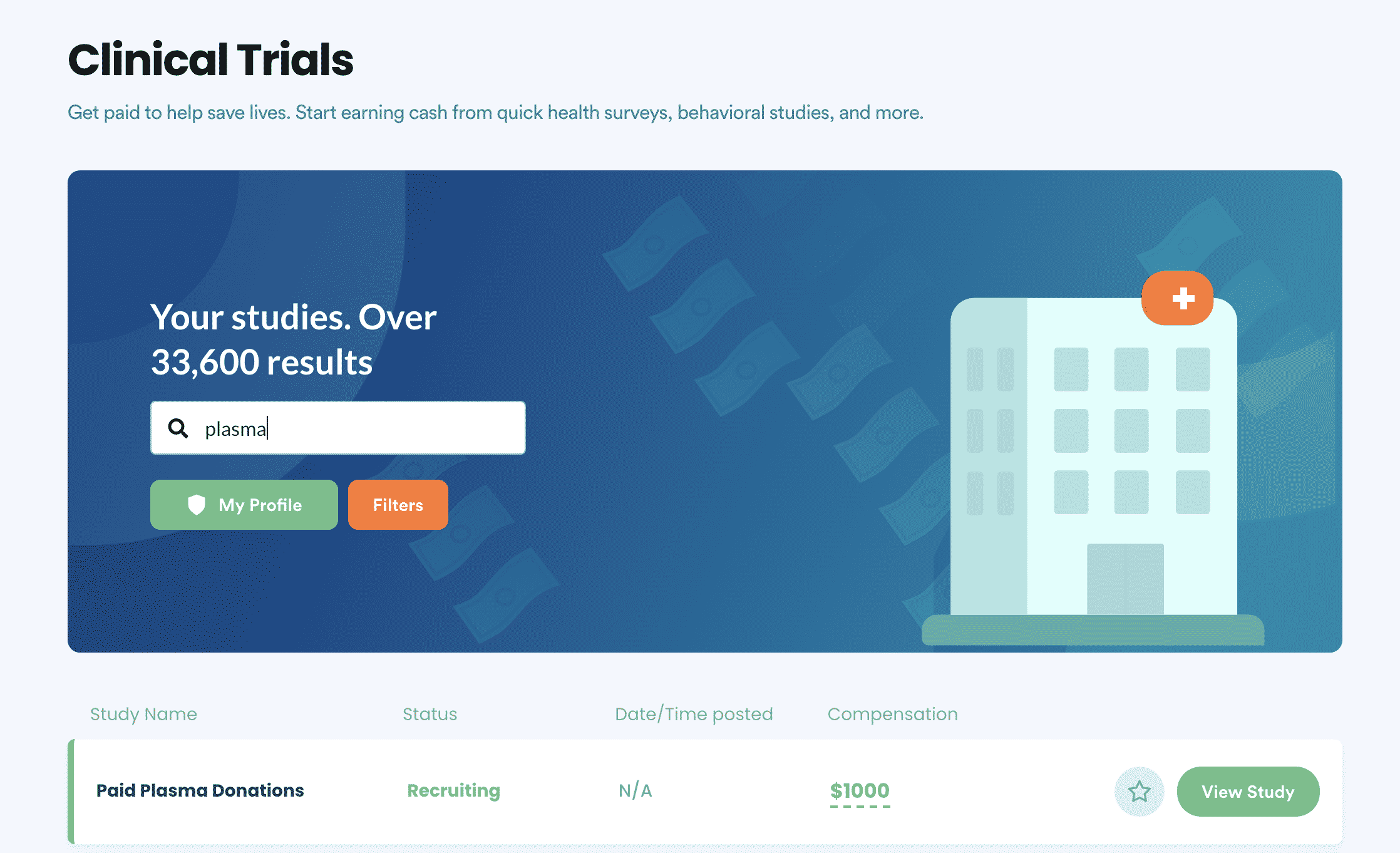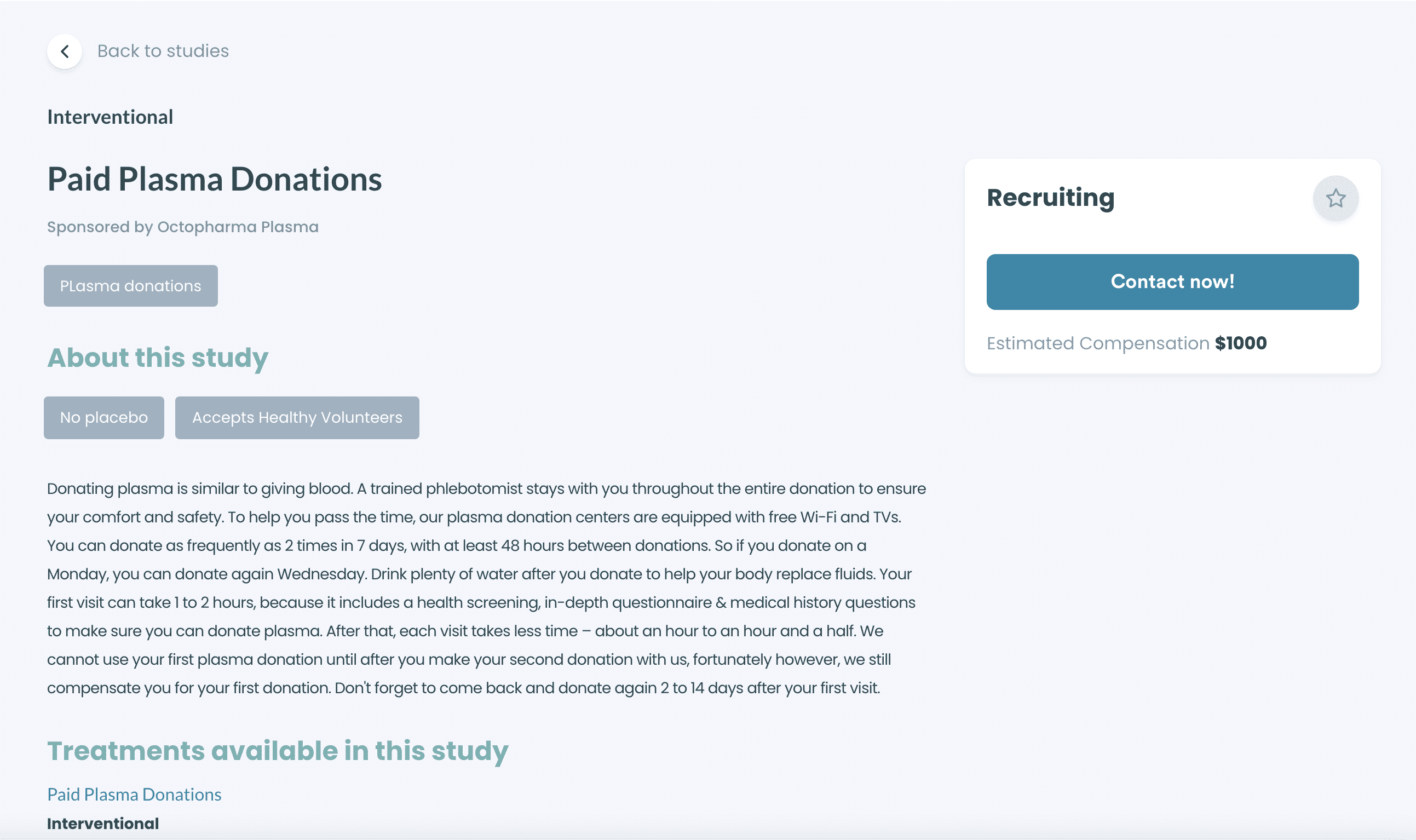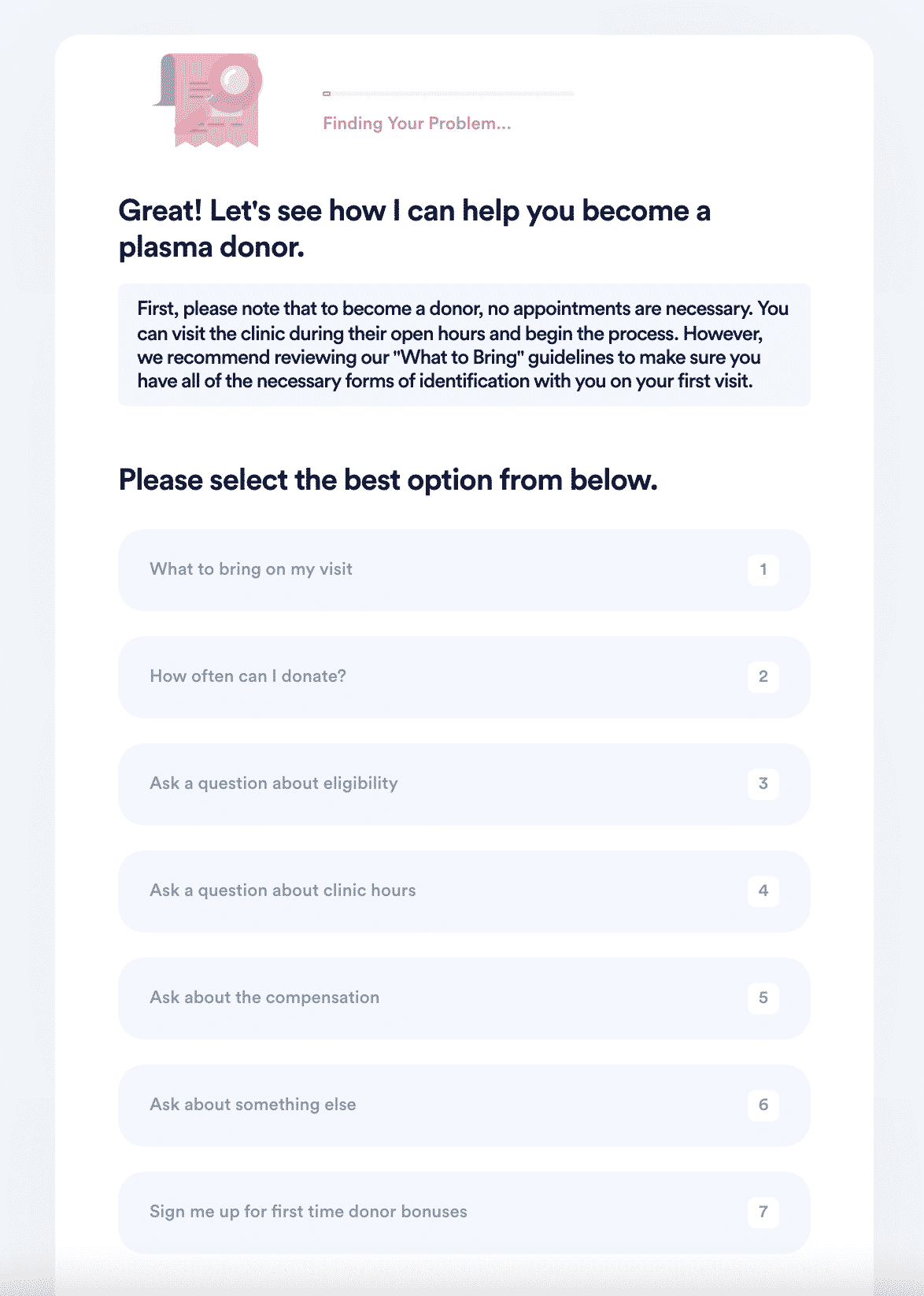Can You Donate Plasma With A Cold
By becoming a plasma donor, you may make a significant difference in someone's life while also receiving compensation. Did you know that by giving plasma, you may earn up to $1,000 every month? However, there are certain conditions in which you may not be able to donate.
Many people wonder if they can still donate if they are ill. We'll take a look at when it is and is not appropriate to donate plasma. Let's take a look at some main points to consider when deciding if it is safe to donate plasma. And Let DoNotPay .
Why Do We Donate Plasma?
According to Plasma Hero, the plasma from your blood can be utilized to create therapeutic drugs or proteins used to treat a variety of life-threatening disorders. Patients with primary immunodeficiency, hemophilia, septic shock, and other conditions are treated with these proteins. There is no alternative for the therapeutic proteins found in plasma, just as there is no substitute for blood.
While whole blood donation is well-known, plasma donation is not as popular. Although the process involves drawing blood from the donor, plasma donation does take a bit longer.
It draws blood from a donor, separates plasma from the blood, and returns the remaining red blood cells and platelets to the donor's body. In a single donation, source plasma donors can provide up to 800 milliliters of plasma.
Plasma Donation Locations in the US
There are many sites across the US where you can go to donate plasma. Here are just a few of those sites:
| Biomat USA | 17641 Vanowen St, Van Nuys, CA 91406 | (818) 344-0204 |
| CSL Plasma | 5775 S Archer Ave, Chicago, IL 60638 | (773) 362-5840 |
| Grand Central Donor Center | 115 E 41st St, New York, NY 10017 | (800) 933-2566 |
Plasma Donor Eligibility Requirements
To be eligible to donate, you must first meet a few simple requirements. According to the Donating Plasma website, those requirements are:
- Plasma donors should be at least 18 years old.
- Plasma donors should weigh at least 110 pounds or 50 kilograms.
- Must pass a medical examination.
- Complete an extensive medical history screening.
- Test non-reactive for transmissible viruses including hepatitis and HIV.
- Follow a recommended diet including 50 to 80 grams of daily protein.
How Much Do You Get Paid for Plasma?
According to the CSL Plasma website, you can earn more than $1,000 for your first month of donations. Payments are made on a reloadable prepaid card, and donors also accumulate points for each donation through our iGive Rewards program.
U.S. FDA regulations state that the maximum frequency of donation is once in two days, and no more than twice in seven days and the pay will vary by location and weight.
Things to Keep in Mind Before Donating Plasma
When planning to donate, please keep a mental note on a few things:
- Ensure you are well hydrated: drink 4-6 eight-ounce glasses of water, fruit juice, or other caffeine-free liquid at least 2 to 3 hours before donation.
- Avoid caffeinated beverages.
- Avoid nicotine or alcohol before or after donating plasma.
- Eat a well-balanced, non-fatty meal in the hours before you donate.
- Get adequate sleep.
Can You Donate Plasma if You Have a Cold?
Due to current COVID protocols, if you are feeling ill and you have been exposed to COVID, you should refrain from donating plasma due to the risk of transmission. People who have a fever, productive cough, or are feeling generally . This also applies to people who are currently receiving antibiotics for active infections.
How to Donate Plasma On Your Own?
To donate plasma, the first thing you will need to do is find a facility near you. Then, you will need to contact them to set up an appointment for a medical screening.
Additionally, you need to research their operation and donating hours, how compensation is provided, and the next steps you will need to take to donate. The process can be very involved, confusing, and very, much time-consuming. However, with DoNotPay, we take the guesswork out of it to save you time and aggravation.
Next Steps for Donating Plasma if You Can’t Do It Yourself
As part of our clinical trial package, DoNotPay can assist you in finding suitable plasma donation centers near you. Not only that, but we provide compensation estimates and clarify the qualifying conditions and contribution process. If you have any questions or concerns about your eligibility, their work hours, compensation, or first-time incentives, we'll assist you all the way.
Here's how you can use DoNotPay to become a plasma donor:
- Search "plasma donations" on DoNotPay and find the nearest donation clinic through our clinical trials product.

- Select the "Contact Now" button to learn more about eligibility criteria, contact the clinic with questions, or sign up for first-time donor bonuses.

- Verify your information and submit your inquiry! DoNotPay will contact the clinic on your behalf and make sure your questions get answered.

DoNotPay Works Across All Areas With the Click of a Button
DoNotPay will help you find donation centers wherever you are located in the US. We can also help with:
- Determining how often you can donate.
- Donation requirements.
- How to donate.
- If you can donate after the COVID vaccine.
- How old do you have to be to donate plasma?
- Find out how long it takes.
- Find out if you can donate plasma.
- Find out if you can donate plasma if you are diabetic.
What Else Can DoNotPay Do?
Not only can DoNotPay help with plasma donation, but we can also help with other healthcare-related topics such as:
- Advance health care directives.
- Sick leave requests.
- Clinical trials.
- Insurance claims.
Plasma donation is a terrific way to give back to your community. Not only will it help you feel good about giving back, but it can also be a great way to generate supplemental income. Whether you are concerned about or where to donate, let DoNotPay help with all your plasma donation needs.


